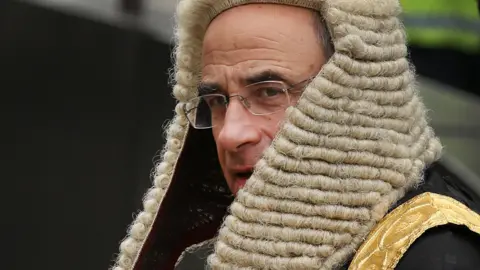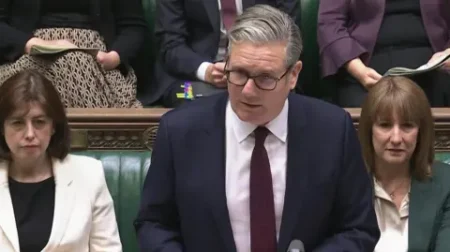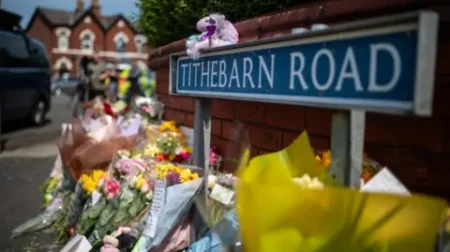In a substantial recommendation aimed at alleviating the immense backlog crippling the criminal courts in England and Wales, a former senior judge has proposed that “jury-free trials” become the new norm for specific cases. Sir Brian Leveson, who was tasked by the Lord Chancellor to devise methods to reduce the burgeoning case backlog, has pointed to the critical state of the English justice system, suggesting immediate reforms to prevent what he has termed a “collapse” of the current judicial framework.
With an alarming count of nearly 77,000 cases awaiting trial in Crown Courts, many defendants and victims find themselves ensnared in prolonged waits for justice that can last for years. In light of this, the contention that certain cases, particularly less intricately tackled matters such as fraud and bribery, should be decided solely by judges and not juries, has emerged as a central theme in Leveson’s proposed reforms. He asserts that while juries are historically intrinsic to the British judicial system, the necessity to ensure timely justice must take precedence, especially at a time when waiting for court proceedings has become increasingly intolerable.
The persistence of an escalated backlog indicates a deeper problem within the structure of the legal system, prompting discussions on how to rectify inefficiencies. In his proposals, Sir Brian highlighted the need for “fundamental” alterations that would breathe new life into the court proceedings. His recommendations include the introduction of two magistrates along with a judge in a new division of the Crown Court to address less serious offenses swiftly. Such changes, according to Sir Brian, will not only shorten the long, tedious processes currently at play but will also enhance the overall efficiency of the court system.
Despite the proactive suggestions, some legal professionals have pushed back against the idea of eliminating jury trials in certain cases, arguing that juries play a pivotal role in upholding fair justice standards. Concerns have been raised that such a move might jeopardize the essential right to be tried by one’s peers, which is a cornerstone of the British judicial system. Legal representatives, including Mary Prior KC, chair of the Criminal Bar Association, have called for a thorough discussion among barristers, underscoring the need to consider the views of legal practitioners before major systemic changes are implemented.
As the debate surrounding these recommendations unfolds, Sir Brian’s suggestions aim to transform the currently perceived broken system into a modernized entity fit for 21st-century demands. He advocates for swift resolutions in less severe cases while shielding the high-stakes matters for jury involvement. The implications extend beyond just the backlog; they are pivotal for the emotional and psychological wellbeing of victims and defendants caught in the quagmire of waiting for trials to commence.
Among the pivotal recommendations from Sir Brian Leveson’s review are provisions like the reclassification of certain offenses and increased reliance on expedited legal processes, including the use of out-of-court resolutions. Transformative changes proposed also include eliminating the right to choose jury trials in cases with lower sentences and adjusting thresholds for various offenses, thereby ensuring a more streamlined approach to the justice process.
The broader implications of the suggested reforms are significant, with anticipation for a government response that will address these recommendations in due course. Lord Chancellor and Justice Secretary Shabana Mahmood has indicated a commitment to swifter justice, stating the need for “bold reforms.” With discussions on the integration of these recommendations anticipated, stakeholders hope that these efforts will lead to a more efficient system and restore faith in the justice process among the public.
The gravity of the current judicial situation in England and Wales cannot be overstated. With judicial leaders, advocates, and the public engaging in an ongoing dialogue about the future of justice, the balance between maintaining essential rights within the legal system and ensuring timely justice is paramount. Implementing the robust recommendations made by Sir Brian Leveson could represent a turning point in the pursuit of a more effective court system that recognizes the urgent need for reform amid growing concerns about delays and access to justice.











